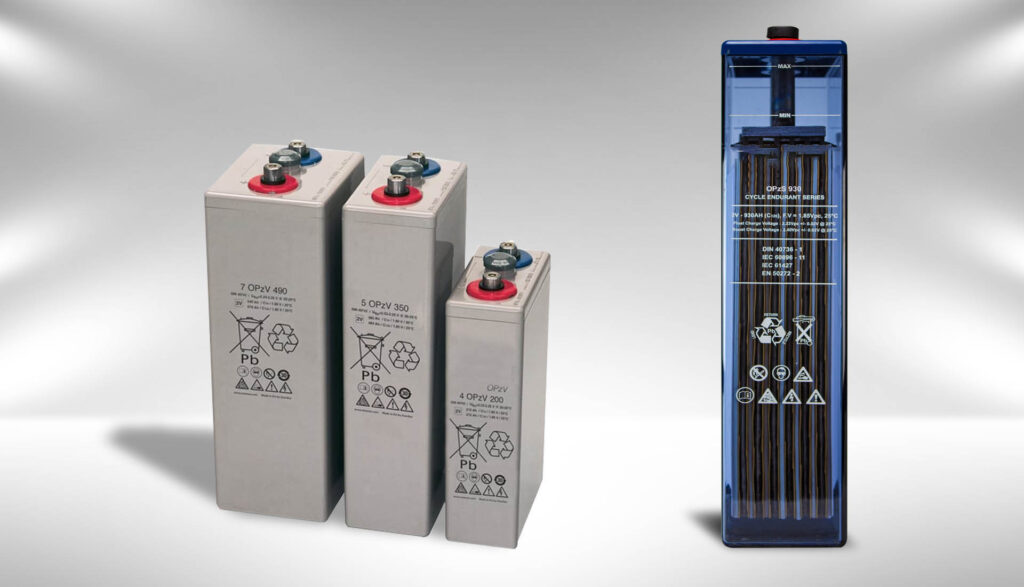Tubular lead-acid batteries and ordinary lead-acid batteries are two types of lead-acid batteries that differ primarily in their construction and performance characteristics.
- Construction:
- Tubular Lead-Acid Batteries: These batteries have a unique construction where the positive plate is made of a series of tubular cells. These tubes are made of a lead alloy and are filled with a paste of lead oxide. The negative plate is typically a flat grid of lead. The tubular design allows for better circulation of electrolyte and reduces the risk of short circuits.
- Ordinary Lead-Acid Batteries: These batteries have flat or plate-like electrodes made of lead or lead dioxide. The electrolyte is typically a liquid sulfuric acid solution.
- Performance:
- Tubular Lead-Acid Batteries: Tubular batteries are known for their high energy density, long cycle life, and excellent deep discharge capabilities. They are often used in applications that require frequent deep cycling, such as renewable energy systems and forklifts.
- Ordinary Lead-Acid Batteries: Ordinary lead-acid batteries are more commonly used in automotive applications, where they provide reliable starting power and a lower initial cost compared to tubular batteries. However, they may not perform as well in deep discharge applications.
- Maintenance:
- Tubular Lead-Acid Batteries: Tubular batteries typically require less maintenance compared to ordinary lead-acid batteries. The tubular design allows for better circulation of electrolyte, which helps to reduce the risk of stratification and sulfation.
- Ordinary Lead-Acid Batteries: Ordinary lead-acid batteries may require more frequent maintenance, such as checking and topping up electrolyte levels, cleaning terminals, and ensuring proper ventilation.
- Cost:
- Tubular Lead-Acid Batteries: Tubular batteries are generally more expensive than ordinary lead-acid batteries due to their construction and performance characteristics.
- Ordinary Lead-Acid Batteries: Ordinary lead-acid batteries are typically less expensive than tubular batteries, making them a more cost-effective option for some applications.
In summary, tubular lead-acid batteries offer superior performance and longer cycle life compared to ordinary lead-acid batteries, but they may be more expensive. The choice between the two types of batteries depends on the specific requirements of the application and the budget constraints.


